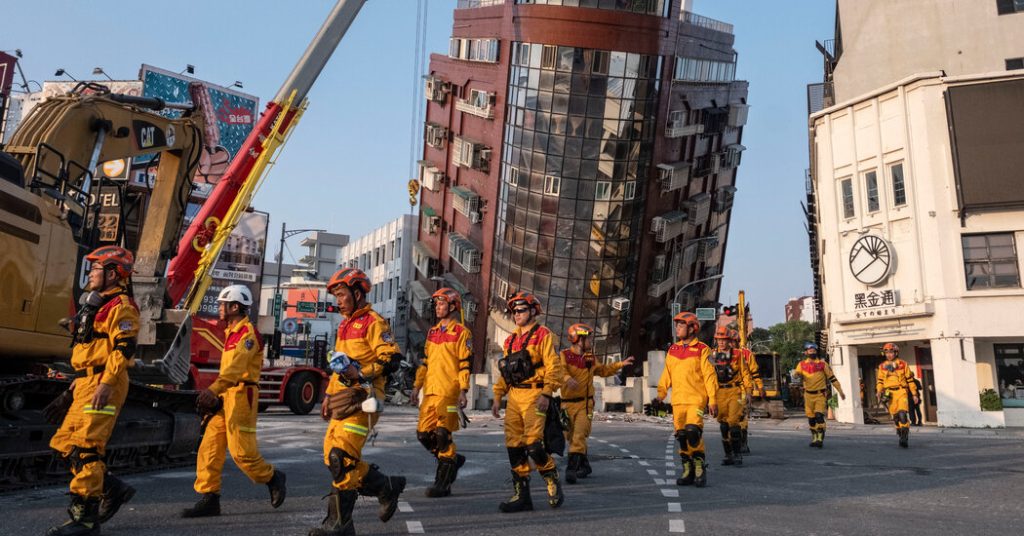Taiwan was struck by a powerful earthquake with a magnitude of 7.4, the strongest felt in the country in 25 years. The earthquake caused nine deaths and over 900 injuries, leaving more than 50 people trapped. The quake also led to tsunami warnings in neighboring countries. Aftershocks continued throughout the day, with over 100 subsequent shocks, causing widespread damage in Hualien County, a region prone to earthquakes. Residents were urged to stay outside due to broken water and gas pipes, with many buildings and roads damaged.
The city of Hualien experienced significant damage, with a brick building called the Uranus Building partially collapsing and leaning to one side. Rescuers focused their efforts on this building, while residents in the area fled into the streets to assess the damage. In addition to building collapses, three hikers were killed by falling rocks in a popular national park. Residents were urged to remain cautious due to the likelihood of more aftershocks, with forecasts predicting rain that could further complicate travel conditions on damaged roads.
A South African resident living in Hualien described chaos and panic on the streets after the earthquake, with blocked roads and collapsed walls adding to the confusion. The earthquake also affected the island’s west coast, with one building in Changhua County toppling entirely. Rail services were halted as authorities inspected tracks for damage. The earthquake hit during the morning commute, disrupting travel plans for people preparing for Tomb Sweeping Day on which people mourn the dead and make offerings at graves.
Taiwan’s vulnerability to seismic activity is due to its location at the intersection of the Philippine Sea tectonic plate and the Eurasian plate. The island has experienced devastating earthquakes in the past, including a deadly quake in 2018 that killed 17 people. The authorities have established emergency response measures, including urban search-and-rescue teams and medical operation centers, to mitigate the impact of earthquakes. Taiwan has also improved its early warning system and implemented new building codes to enhance structural reinforcement in vulnerable buildings.
Businesses in Taiwan, such as the world’s largest maker of advanced semiconductors, TSMC, briefly evacuated workers from factories following the earthquake. However, production resumed shortly after with no reported injuries. The earthquake, while causing significant damage and disruption, highlighted Taiwan’s preparedness for natural disasters and its ability to respond effectively to emergencies. As the island continues to recover from the earthquake, residents are urged to remain vigilant and cautious due to the ongoing risk of aftershocks.


